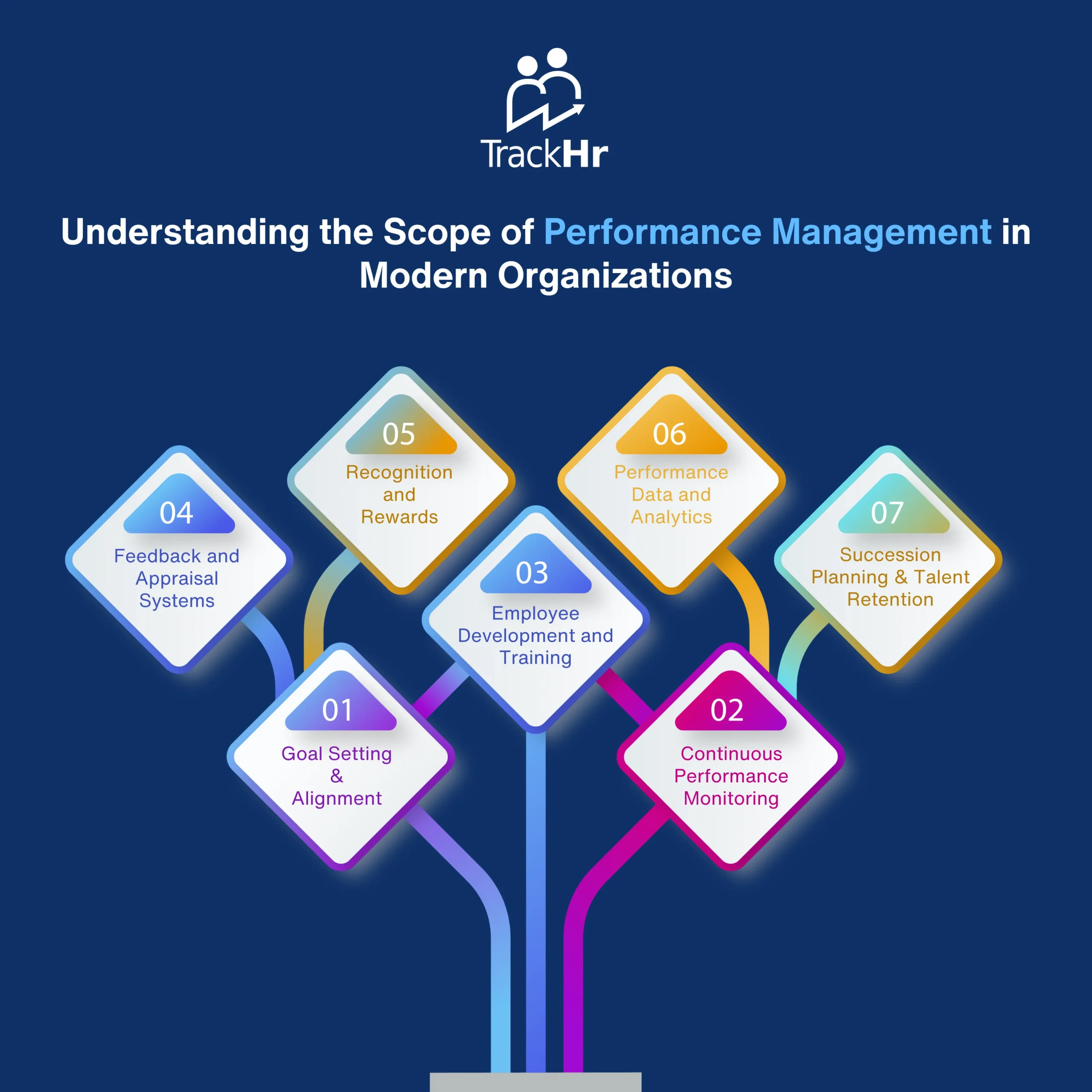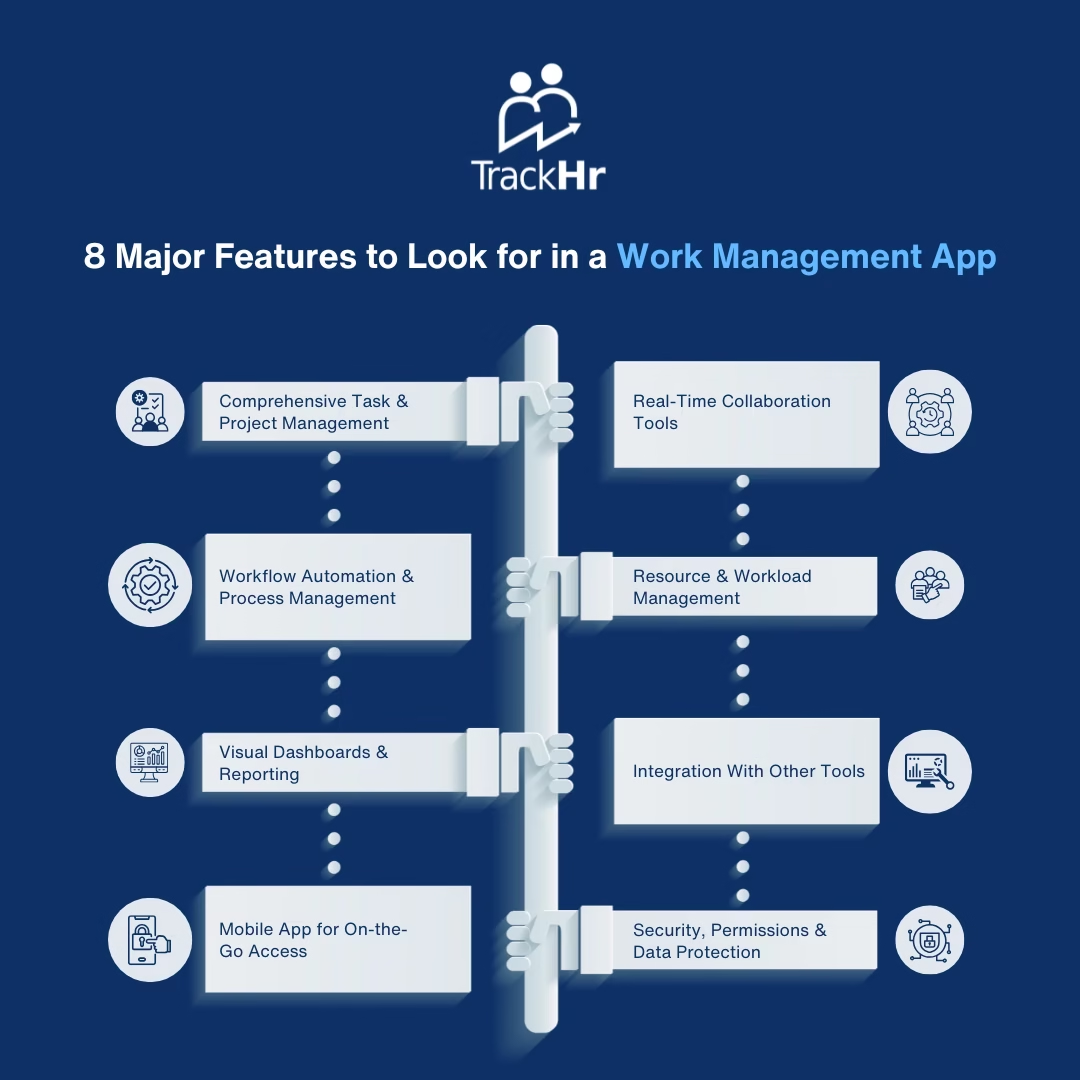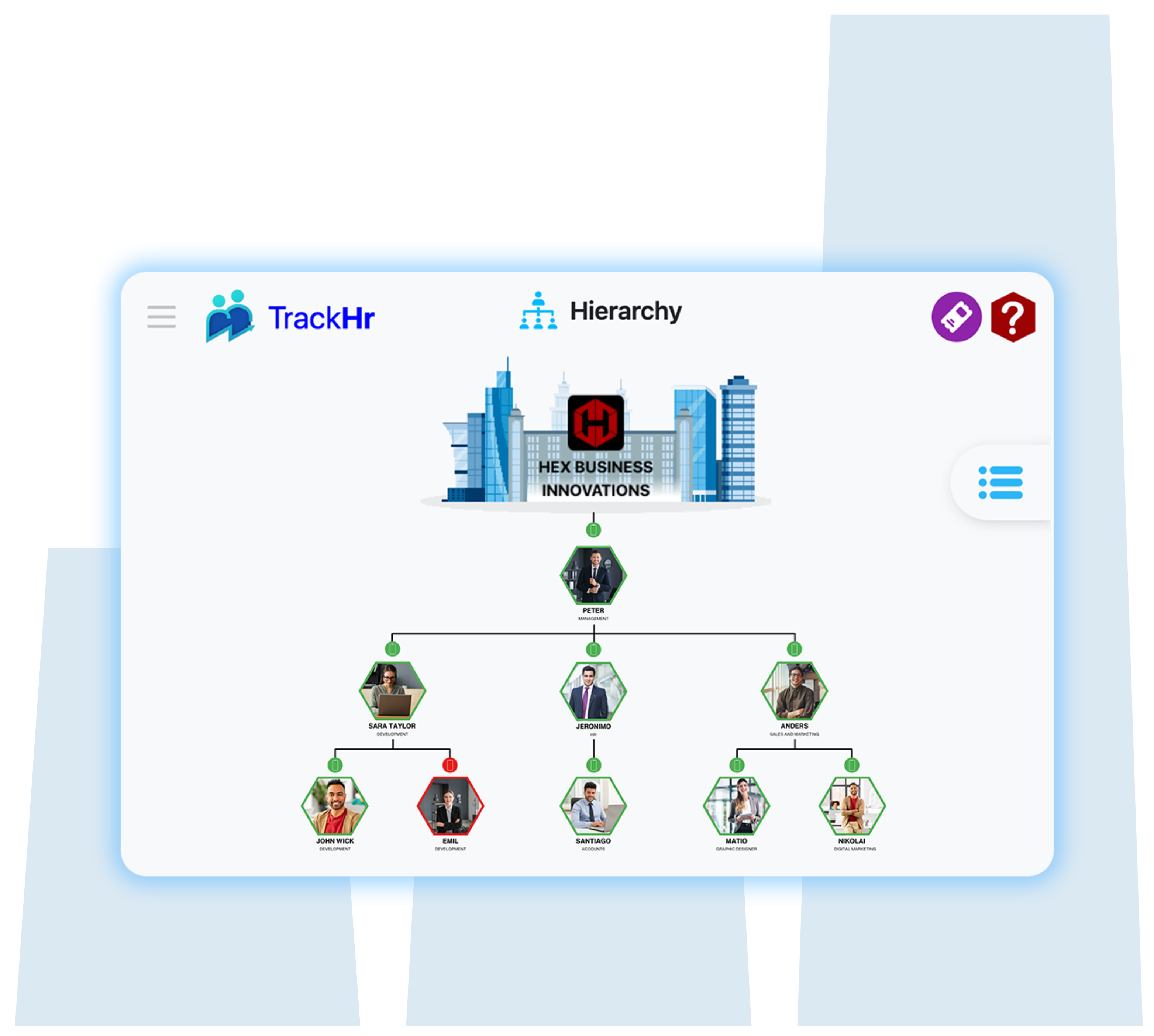Blog
Understanding the Scope of Performance Management in Modern Organizations
- July 25, 2025
- 9:46 am

The scope of Performance management exceeds the area of appraisals, which is on an annual basis. It is a process that is ongoing and strategic and aligns the performance of the employees with organizational objectives. When well utilized, it is productive, accountable, and has long-term growth at all business levels.
1. Goal Setting and Alignment
Performance management begins with well-spelled-out objectives. It makes sure that personal objectives find a unified direction, departmental and organizational objectives. This provides team synergy.
2. Continuous Performance Monitoring
The assessments could not be done annually. Performance management systems today are obsessed with the idea of continuous monitoring via frequent check-ins, feedback mechanisms, and updates in real-time to keep employees on track.
3. Employee Development and Training
Establishing gaps in skills and offering learning opportunities is an important scope of performance management. This involves development of coaching and mentoring, and specific training programs that make the employees develop in their jobs.
4. Feedback and Appraisal Systems
Regular performance appraisal and positive corrections are vital aspects. Proper feedback plays the role of motivation, expectation, and establishing a high-performance culture.
5. Recognition and Rewards
Performance management also entails rewarding achievements as well as identifying achievers among the performers. This improves the morale of the employees, and a culture of excellence and loyalty is pursued.
6. Performance Data and Analytics
The use of digital applications allows organizations to evaluate their performance levels, collect trends, and make decisions regarding promotions, adjustment of roles, or education requirements.
7. Succession Planning and Talent Retention
With performance monitoring over time, companies are able to find high-potential employees, pre-plan their future leadership pipeline, thereby cutting turnover and future business disruption.
Conclusion
Performance management has a wide scope and influence. It includes everything between goal alignment, development of talent, real-time tracking, and planning of strategy. Companies making investments in whole performance management have greater productivity, employee satisfaction, and ultimately success.
Table of Contents
Exhausted from managing performance management manually?






